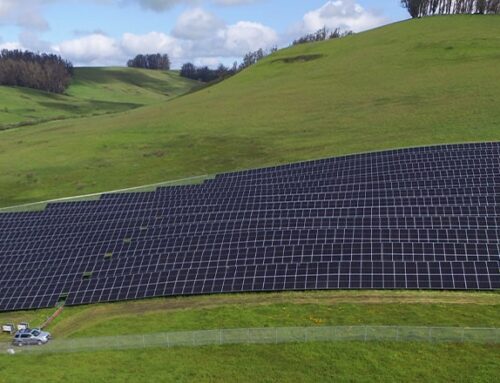TL;DR – Discover how MCE is tackling PSPS outages with strategic investments:
● Public Safety Power Shutoff (PSPS) events highlight the need for increased energy resilience
● Use of GIS and community mapping tools help inform how to target resiliency investments
● MCE is strategically delivering community resiliency efforts to mitigate PSPS impacts
Extreme weather caused by climate change has led to more frequent power outages in California and across the United States. Millions of Californians have experienced PSPS events in recent years. These outages have underscored the need for increased energy resilience and emergency preparedness. MCE is utilizing data to ensure that resiliency investments are thoughtfully targeted to best support our communities.
Understanding the Impact of PSPS events
Utility companies that deliver energy, such as PG&E, proactively cut power to prevent wildfires. This approach helps lower the risk of equipment igniting a wildfire during high-fire conditions.
PSPS events have profound consequences. They have caused spoiled food and medication, missed work and school, and significant difficulties for people who rely on medical devices. Small businesses also lose revenue during an outage due to a decrease in customers or a lack of refrigeration for perishable items.
Mapping the Impact of PSPS events
PSPS outages are often concentrated around high-fire threat districts, but specific areas may be prone to increased frequency or duration of outages. MCE utilizes PSPS and fire threat mapping data to analyze the severity of impacts on specific locations.
MCE utilizes CalEnviroScreen mapping of environmental, health, and socioeconomic information to determine which communities face unique challenges during power outages due to historical and persisting inequities. This data helps provide a picture of which communities may have limited grid infrastructure and fewer distributed energy resources like solar or energy storage that can provide backup power during an outage. Limited resources magnify overlapping challenges that individuals face, making it harder to weather a destabilizing event like a PSPS.
Supporting Community Needs with MCE’s Energy Resiliency Efforts
MCE recognizes that certain communities bear a disproportionate burden from PSPS events. Communities with a higher percentage of older people or that are historically disadvantaged may also experience disproportionate impact as a result of power shutoff events. MCE is committed to meeting crucial needs by taking steps to strategically invest in energy solutions for impacted communities.
Battery Giveaway
In partnership with the Marin Center for Independent Living, MCE has provided portable batteries to 200 residents with medical challenges. The batteries, manufactured by Goal Zero, hold 3 kilowatt-hours of reserve power and allow customers to power life-supporting medical equipment and remain at home during shorter outages.
Clean Backup Power for Critical Facilities
MCE is supporting the development of resilience hubs to provide solar and storage solutions for critical facilities at local nonprofits and low-income multifamily housing. As a result, residents have familiar and nearby spaces to turn to when experiencing PSPS events. These efforts have funded resilience solutions at West Marin Medical Center, Bayside Martin Luther King Jr. Academy, Lagunitas School District, and San Geronimo Valley Community Center.
Self-Generation Incentive Program
MCE helped customers access energy storage rebates through CPUC’s Self-Generation Incentive Program (SGIP). The program is available to customers who live in a high-fire threat district or have experienced multiple PSPS outages. MCE facilitated applications for 144 residential and 8 nonresidential customers, leading to more than $600,000 in customer incentives awarded.
Development of Microgrids
Microgrids are any local sources of generation and energy storage that can be disconnected from the larger energy grid to provide energy to a single facility or to a group of buildings or homes, notably to maintain power during a grid outage. In 2020, MCE’s Board of Directors adopted the “Principles of Preferred Resources for Microgrid Development Related to Public Safety Power Shutoffs.” MCE is actively engaging under the proceeding to ensure that new microgrid interconnection is developed expeditiously, and that they will support vulnerable communities while considering long-term cost and environmental impacts.






